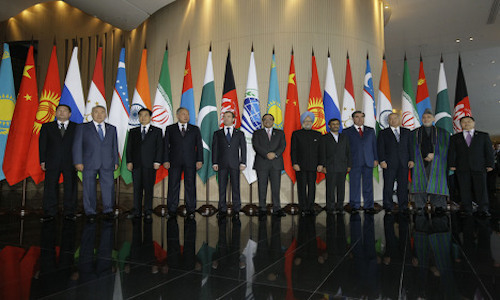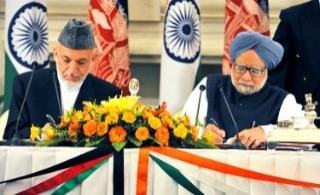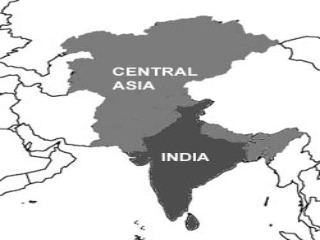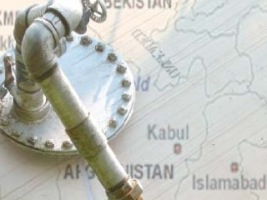Shanghai Cooperation Organization Set to Expand
By John C.K. Daly (08/14/2014 issue of the CACI Analyst)
The Shanghai Cooperation Organization (SCO) currently consists of China, Kazakhstan, Kyrgyzstan, Russia, Tajikistan and Uzbekistan. At an August 1 meeting in the Tajik capital Dushanbe, foreign ministers from the six member states reached consensus on legal documents providing for expanding the SCO to include four current SCO observer states, India, Pakistan, Iran and Mongolia, passing two draft documents on expansion for approval at the SCO summit to be held in Dushanbe September 11-12. If passed, it will be the largest expansion of the SCO since its founding.

“CACI Analyst, January 22, 2014”
Afghanistan and India Deepen Strategic Cooperation
By Richard Weitz (the 22/01/2014 issue of the CACI Analyst)
India has made major economic, political, and strategic investments in Afghanistan since the Taliban lost power in 2001. The two countries share an interest in Afghanistan’s postwar reconstruction, pursuing common diplomatic goals, and cooperating against mutual security threats. For years, India has been undertaking programs to bolster Afghanistan’s security capabilities and integrate the country into regional diplomatic and economic structures. Now with the withdrawal of Western combat forces, India is acceding to longstanding Afghan government requests and deepening bilateral security cooperation, despite the risks of provoking a strong and adverse reaction in Islamabad, as well as enlarging their economic collaboration.

India's Challenges in Central Asia
By Stephen Blank (the 08/01/2014 issue of the CACI Analyst)
As India enters 2014 it faces multiple and mounting security challenges in Central Asia, which originate first of all in Afghanistan and second in Iran. The impending U.S. and NATO withdrawal leaves India as the most exposed foreign power supporting Afghanistan, which few believe can survive without continuing large-scale allied support and at least some military presence. The U.S. withdrawal, which might be accelerated if no Bilateral Security Agreement (BSA) is signed between Washington and Kabul, would expose India to the risks of intensified fighting in Afghanistan. Pakistan’s belief that India’s presence there represents a threat also exposes India to further terrorist onslaughts, particularly by forces trained and supported by Pakistani military and intelligence agencies.

TAPI: Time for the Big Push
by Gulshan Sachdeva (07/10/2013 issue of the CACI Analyst)
Despite many positive developments in the last few years, the future of the ambitious TAPI gas pipeline project is still in doubt. All four partner countries are making serious preparations for the project. However, the uncertainty surrounding post-2014 Afghanistan has dampened the motivation among major energy companies to act as lead consortium partners of the project. In these circumstances, multilateral agencies like the Asian Development Bank may have to play a crucial role in salvaging the project. Likewise, if the U.S. administration is serious about its support for TAPI, it should put its full diplomatic and financial weight behind it.




